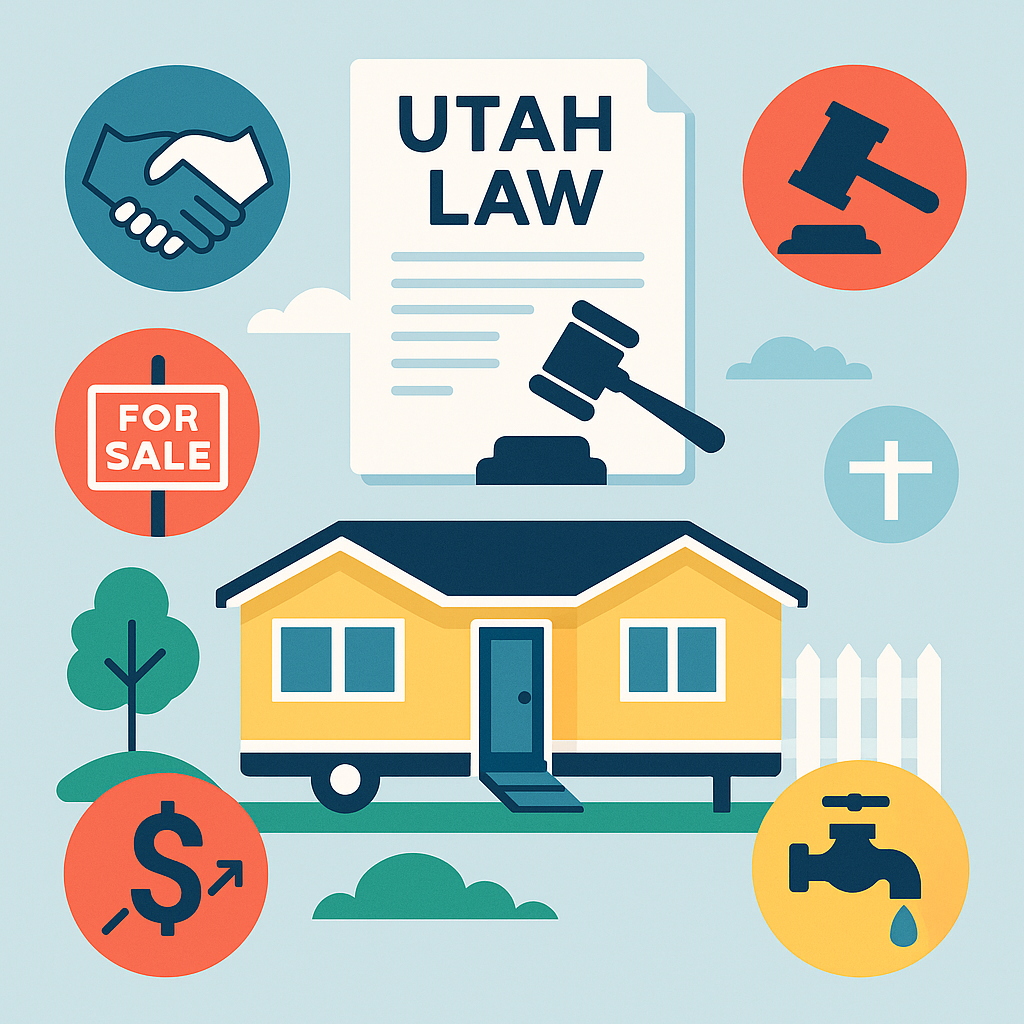What Rights Do Mobile Home Park Residents Have in Utah?
Plain-English guide to the Utah Mobile Home Park Residency Act, leases, rent changes, sales, utilities, and eviction limits
If you own a mobile or manufactured home but rent the lot beneath it, Utah law gives you specific rights and protections. Mobile home communities operate under unique rules. Understanding them helps you avoid costly mistakes.
This guide explains how the Utah Mobile Home Park Residency Act works across leases, rent increases, home sales, utilities, dispute options, and eviction limits so you know where you stand.
Park-Tenant vs. Home-Owner Status
In Utah, a mobile home park resident is usually both a homeowner and a tenant. You own the home itself but rent the lot from the park owner. That means two sets of rules apply: landlord-tenant law for the space you rent and property law for your home.
Under the Utah Mobile Home Park Residency Act (MHPRA), park owners must provide written rental agreements that clearly outline terms, rent, and park rules. The law limits sudden changes and unfair treatment tied to home ownership or resale.
Rent Increases & Rule Changes
Park owners must give at least 60 days of written notice before increasing rent or changing park rules. Any new rule must be applied fairly to all tenants and cannot be used to target specific residents.
If you receive a rent increase that feels retaliatory, such as after you have filed a complaint or joined a tenant group, you may have the right to challenge it through local mediation or court review.
Selling or Moving Your Home
If you sell your home while it remains on the rented lot, the park owner cannot block the sale or require you to move it unless the home fails to meet reasonable park standards.
Qualified buyers must be allowed to assume the same lot rental terms if they meet the park’s standard rental qualifications. If the park closes or redevelops, residents are generally entitled to reasonable relocation notice and sometimes limited relocation help through city or county housing programs.
Utilities & Maintenance Duties
Most parks require residents to maintain their homes, lawns, and small areas around the lot. Park owners must maintain roads, shared spaces, and main utility lines.
If you are billed separately for water, gas, or electricity, the rates must be clearly itemized in your lease or billing notice.
Eviction Grounds & Notices
Evictions from mobile home parks follow strict timelines under Utah law. A park owner cannot evict without cause. Valid grounds include:
- Nonpayment of rent after proper notice
- Repeated rule violations after written warnings
- End of a fixed-term lease with at least 60 days of notice
- Park closure or land-use change with 180 days of notice
Unlawful tactics such as cutting off utilities, locking you out, or seizing property are prohibited. Tenants facing eviction can request a court hearing to challenge improper or retaliatory actions.
Dispute Options
Start with a written request to resolve the issue. Utah landlord-tenant mediation programs through county housing authorities can help without going to court.
If mediation fails, small claims or district court may be appropriate depending on the amount and the issue.
Video & Social Learning Hub
YouTube: Utah Mobile Home Park Rights
Instagram: Utah Mobile Home Community Highlights
Need Help Applying This to Your Park?
Mobile home park residents in Utah have more rights than most people realize. Understanding the MHPRA is key to staying secure and informed.
Talk to a Utah AttorneyFor more plain-English legal guidance, stay updated with Utah Law Explained, explore our mission on the About Us page, or connect with trusted counsel like Gibb Law Firm.
